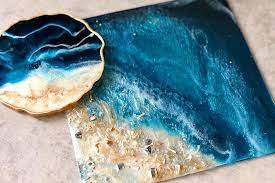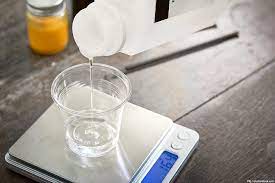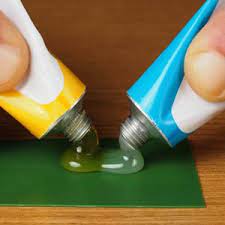When it comes to choosing the best epoxy resin for craft projects, it’s essential to consider factors like clarity, versatility, and bubble-free results. Crystal clear epoxy resin, ideal for molds, silicone molds, tables, and art, ensures professional-looking finishes.
Craft resin kits offer ease of use, while non-toxic options provide peace of mind. Whether you’re making jewelry, casting, or creating art, selecting the right epoxy resin enhances your project’s quality and durability.
Choosing the Best Epoxy Resin for Craft Projects
When it comes to finding the best epoxy resin for craft projects, it’s essential to consider factors like clarity, ease of use, and suitability for various materials. For wood crafts, opt for a resin that offers excellent adhesion and a glossy finish, like epoxy adhesive.
Beginners may find success with easy-to-use options, such as two-part epoxy resin or resin pouring medium. Explore different brands and types to discover what works best for your art projects and craft ideas.

Choosing the Best Epoxy Resin for Craft Projects If you’re into crafting, then epoxy resin is a material you should be aware of. It can be used for a wide variety of projects and offers some unique benefits over traditional materials like wood or fabric. However, not all epoxy resins are created equal. The type you choose will depend on your project and the desired results. Let’s take a look at what to consider when selecting an epoxy resin for your craft projects.
Types of Epoxy Resins
The two main types of epoxy resin are casting resin and laminating resin. Casting resins are ideal for creating solid objects such as jewelry, molds, sculptures, and more. They usually come in two parts that need to be mixed before use and cure quickly (usually within 24 hours).

Laminating resins are better suited for coating surfaces such as wood or fabric to make them waterproof or resistant to staining. They also come in two parts that must be mixed before use but take longer to cure (usually up to 72 hours).
Working with Epoxy Resin
When working with epoxy resins, it’s important to follow the manufacturer’s instructions closely. This will ensure that your project turns out correctly and lasts for many years without any issues.

Additionally, when mixing the components make sure they are thoroughly combined before pouring it into your mold or surface area. If there are any unmixed sections, they could cause problems later on down the line such as discoloration or cracking of the finished product.
Heat Resistance
One factor you may want to consider when choosing an epoxy resin is its heat resistance level. Some resins can withstand higher temperatures than others so this is something that may be important depending on how you plan on using your finished product. For example, if you intend on placing hot objects directly onto the surface then you would want an epoxy resin with high heat resistance levels so it won’t melt or warp from the heat exposure.

In conclusion, there is a lot to consider when selecting an epoxy resin for craft projects. You’ll need to determine which type works best based on your needs (casting vs laminating), follow the manufacturer’s instructions carefully during use, and keep in mind any heat resistance requirements if applicable. With some careful consideration and attention to detail, you’ll have no issue finding the perfect epoxy resin solution for your next craft project!
What are the Benefits of using Epoxy Resin?
Epoxy resin is one of the most reliable and durable materials used for coating and adhesives, as well as a wide range of other products. It provides numerous advantages, including:

1. Durability
The epoxy resin forms an incredibly hard, rigid material after it cures. This makes it strong enough to withstand chips and scratches from daily wear and tear over time, making it perfect for use in many different applications such as countertops, flooring surfaces, furniture, or artwork.
2. Chemical Resistance
One major benefit of epoxy resin is its high resistance to chemical corrosion from various sources such as oil spills or exposure to certain acids and alkalis. This allows components coated with epoxy resins to remain secure when exposed to biological agents like bacteria or fungi which can cause decay over time.
3. Versatility
As mentioned before, epoxy resins have a variety of uses that make them ideally suited for many industries ranging from construction through automotive engineering right up to glass masonry works and pottery painting projects at home! They are also extremely versatile when used in combination with fabrics (for instance composites) providing an excellent structural adhesive that improves strength while remaining flexible enough not to compromise design aesthetics either visually or structurally (if the component expands).
4. Heat Resistance
Epoxies can also be engineered by adding specific heat-resistant fillers so they become suitable for very high-temperature applications without negative effects on their performance due to thermal expansion or contraction during extreme changes in temperature levels around them (up until 400°C).
5. Insulation Properties
Last but not least these coatings can offer excellent electrical insulation properties too! Their ability to resist electric charge being passed through them makes them ideal additives inside some types of capacitors where they help minimize power losses due to their low reactivity rate under alternating current loadings – compared with other types of insulators/fillers usually employed instead here such as silicone rubber compounds etc…
Epoxy resin is one of the best materials available for several applications due to its strength, durability, and versatility. It has countless uses in many different industries, from aerospace engineering to furniture manufacturing.
The primary benefits of using epoxy resin are its strength and flexibility. When combined with hardeners or other resins like polyester or urethane, epoxy can create incredibly strong bonds that can adhere to most materials. By contrast, traditional adhesives like wood glue or superglue are not nearly as strong as an epoxy bond when subjected to extreme temperatures and high-stress environments which makes it an ideal choice for products used in harsh conditions such as aircraft and vehicles. Additionally, since the two parts of an epoxy mix need each other for successful application – meaning you get a reaction between them when mixed – it allows users to create consistent results every time they use it.
Epoxy also works great in applications where corrosion is a problem because it’s highly resistant to weathering and rusting due to corrosion inhibitors such as zinc oxide incorporated into the formula during manufacture. Epoxies also have excellent electrical insulating properties making them suitable for circuit boards and wiring harnesses while their heat resistance makes them perfect for laminates used on cookware surfaces where food won’t stick easily when cooked at high temperatures.
Conclusion
Finally, perhaps one of the greatest advantages of using epoxy resins over other types of adhesives is that they do not shrink after curing which makes seams much more clean with less mess than traditional adhesives, leading users to save both time and money on their projects!